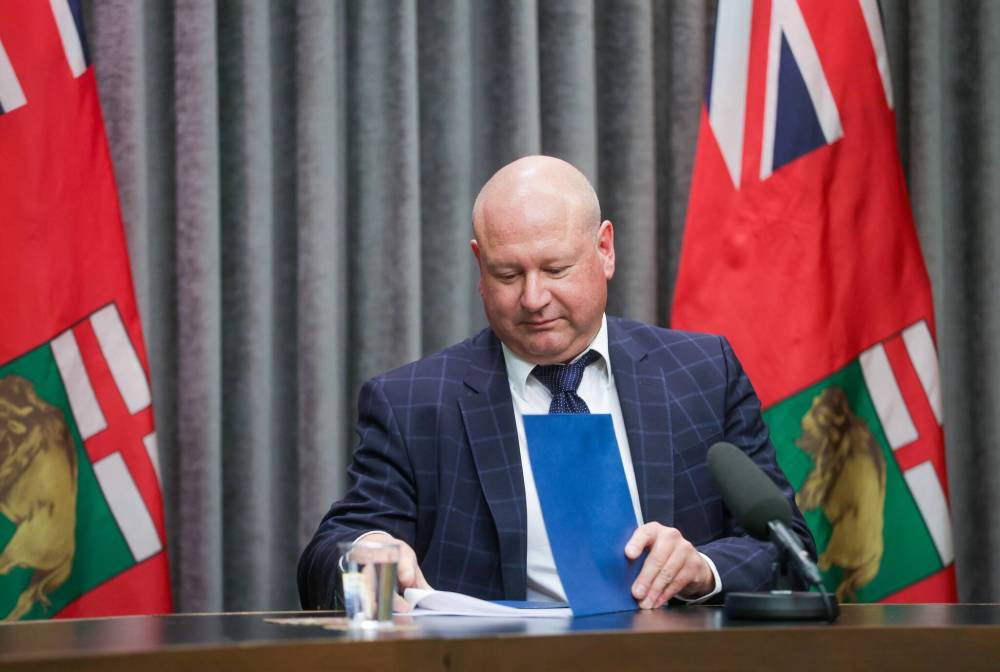
THE chief provincial public health officer claimed the highest compensation on Manitoba’s payroll during the last fiscal year, while other medical officers placed among the top 10.
Dr. Brent Roussin earned $535,286 between April 2022 and March 2023, a number that can include any combination of salary, bonuses, severance, allowances, commissions and/or other payments, according to a public-sector compensation disclosure report.
Roussin’s total compensation declined from the previous year, when he earned $634,301, and had the second-highest compensation among direct government of Manitoba staff.
RUTH BONNEVILLE / FREE PRESS FILES Dr. Brent Roussin earned $535,286 between April 2022 and March 2023.
Six other medical officers joined Roussin among the province’s 10 highest compensated public employees in 2022-23 (not including staff at universities, care homes, school divisions and other entities).
A taxpayer’s advocate said it’s common to see high-ranking health-care leaders among the most highly compensated staff.
“It’s fairly typical in most provinces… (However) health care is kind of an issue that’s top of mind with many Manitobans right now, so they need to see if we’re actually getting the worth of these taxpayer dollars that are going into these salaries,” Gage Haubrich, Prairie director of the Canadian Taxpayers Federation, said Monday.
Haubrich said he’d prefer to see more detail released on the compensation packages, such as by specifying what portion reflects salaries and how much reflects other benefits.
When a broader look at all public salaries is considered (including those at universities, care homes, etc.), the number of employees who make enough money to have their salaries disclosed has increased, from 37,044 in 2020 to the current 42,222, noted Haubrich.
There’s a need for scrutiny to ensure taxpayers can afford the salaries that government approves, he added.
“It’s always in the best interests of government to make sure they’re paying a competitive salary but that they’re not fleecing taxpayers to get this done. Health care is always one of the biggest expenditures of an overall provincial budget. So they need to make sure they’re spending that money on priorities (to get) people healthy and not on big bureaucrat salaries. They have to walk that line.”
Manitoba’s public-sector compensation reports previously published the salaries of all staff who made at least $75,000, a threshold that rose to at least $85,000 this year.
A key provincial union leader said many provincial workers fall below that threshold and are struggling to keep up with the high cost of living. He stressed government officials must ensure they set competitive wages that attract workers.
“When this government really pushes heavy-handed wage restraint down on these groups, it makes it very difficult to recruit,” said Kyle Ross, president of the Manitoba Government and General Employees’ Union. “It’s a challenging environment right now. There are so many vacancies in the public sector that it’s really challenging to recruit and retain.”
A provincial spokesperson could not be reached for comment.
An automated email answering media requests noted provincial offices were closed Monday, in lieu of the National Day for Truth and Reconciliation (Sept. 30).
Twitter: @joyanne_pursaga

Joyanne Pursaga
Reporter
Born and raised in Winnipeg, Joyanne loves to tell the stories of this city, especially when politics is involved. Joyanne became the city hall reporter for the Winnipeg Free Press in early 2020.
Read full biography


